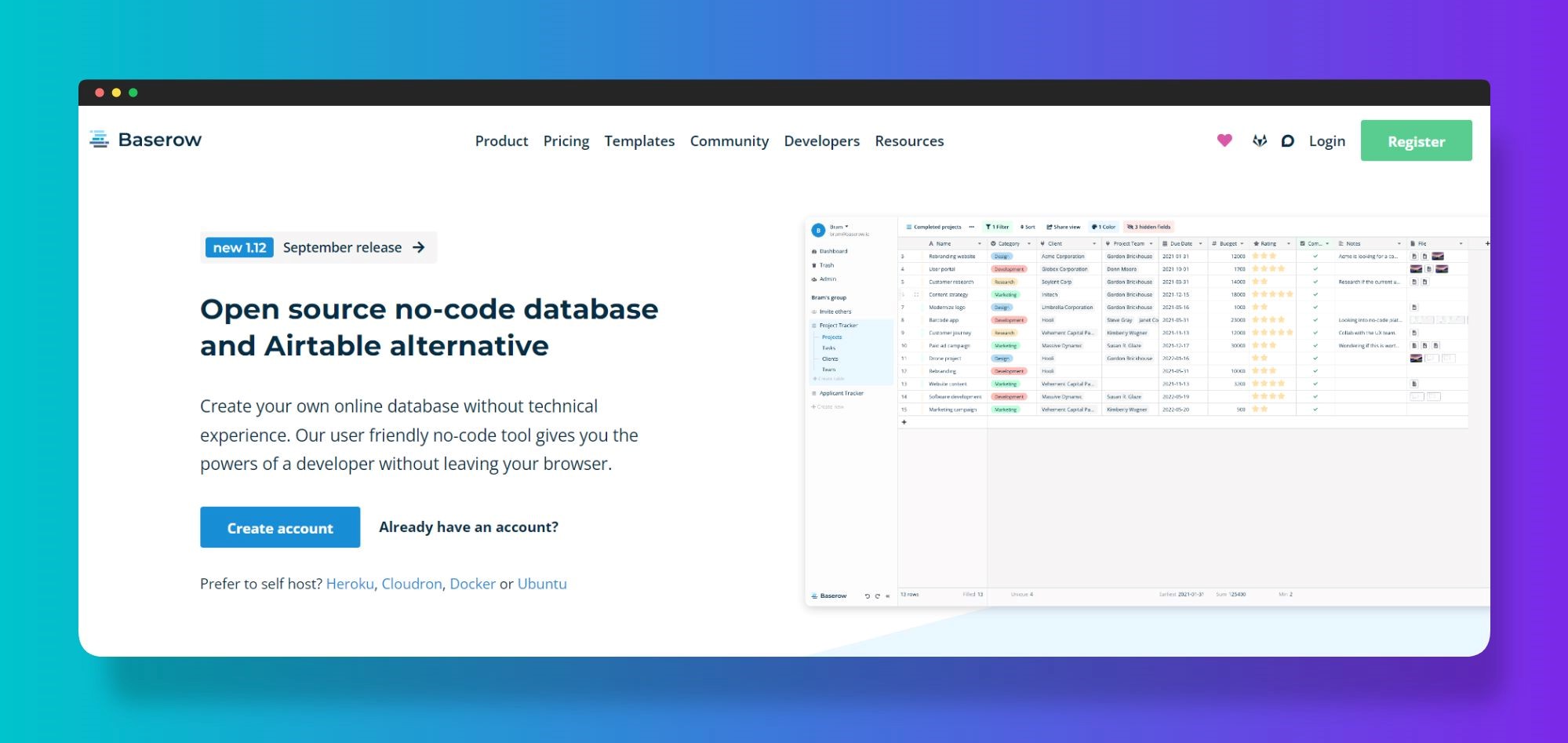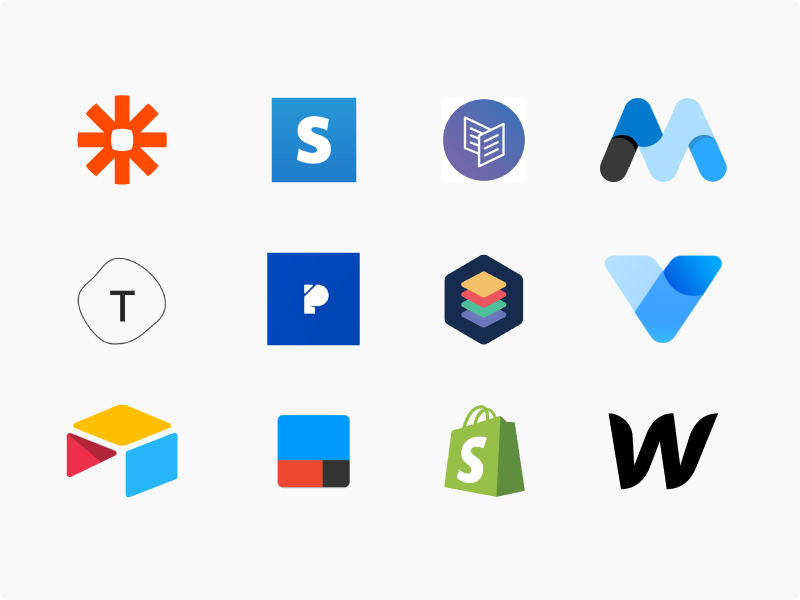Why No-Code is the Future of Open Platform Data Source Creation for Services
Why No-Code is the Future of Open Platform Data Source Creation for Services
Blog Article
Exploring the Benefits of Scalable Databases That Need No Coding Skills for Efficient Information Administration Solutions
The introduction of scalable data sources that get rid of the need for coding abilities presents a transformative possibility for organizations seeking reliable information management remedies. As we take into consideration the implications of such developments, it ends up being important to analyze just how they can reshape the landscape of data management and drive lasting development in a competitive environment.
Boosted Access for Individuals
Improved ease of access for customers is an essential aspect of scalable data sources, making certain that information administration systems are instinctive and easy to use. In an age where data-driven choices are vital, access permits a broader variety of customers, including those without extensive technological proficiency, to engage with data source systems effectively. This democratization of information accessibility promotes improved partnership across departments, encouraging employees to make and draw out understandings informed choices.
User-friendly user interfaces, such as visual data and drag-and-drop attributes representation, streamline complicated data interactions. These enhancements reduce the knowing contour connected with typical database administration, making it possible for customers to concentrate on leveraging information as opposed to facing technical intricacies. Scalable databases frequently integrate real-time analytics and personalized control panels, supplying individuals with prompt understandings tailored to their particular needs.

Cost-Effectiveness and Resource Financial Savings
Effective data management not just rests on availability however also on cost-effectiveness and source savings. Scalable databases made for individuals without coding abilities significantly reduce economic problems usually connected with typical data source administration systems. By getting rid of the requirement for specialized programs know-how, companies can assign their sources extra effectively, concentrating funds on core business tasks as opposed to extensive training or hiring skilled workers.
Furthermore, these data sources typically use cloud-based solutions, which even more reduce prices associated with hardware and upkeep. Organizations can scale their database services according to their needs, staying clear of the expenditures sustained from over-provisioning resources. This adaptability means companies can adjust to altering needs without sustaining unnecessary prices, bring about considerable long-lasting savings.
Furthermore, easy to use interfaces streamline data entrance and monitoring procedures, decreasing the moment invested in management jobs. This performance equates right into labor cost financial savings, permitting teams to concentrate on calculated initiatives as opposed to regular maintenance. In general, embracing scalable data sources that call for no coding skills fosters a much more economical method to information management, allowing organizations to optimize their sources while maintaining high levels of functional effectiveness.
Improved Partnership Throughout Teams

In addition, scalable databases promote seamless interaction amongst employee. With straightforward interfaces that need no coding abilities, staff members can quickly produce, customize, and share reports or dashboards tailored to their certain demands. This democratization of information equips non-technical individuals to add understandings, enhancing the collaborative environment.
Additionally, these data sources sustain simultaneous gain access to, enabling multiple individuals to deal with the same dataset simultaneously. This feature review enhances efficiency, as teams can participate in joint data analysis without the threat of version control concerns. The capacity to leave remarks or notes directly within the data source additionally promotes dialogue and makes clear data analyses.
Streamlined Data Management Processes
In today's data-driven atmosphere, organizations recognize the need of structured data management processes to take full advantage of performance and accuracy. By leveraging scalable databases that call for no coding skills, businesses can streamline their data handling and reduce the intricacies normally related to standard database systems. This access empowers non-technical individuals to involve directly with data, promoting quicker decision-making and decreasing dependence on specialized IT personnel.
Structured information administration processes enhance operations by automating routine tasks such as data access, validation, and coverage. Automated data assimilation ensures that information from various sources is accumulated seamlessly, removing silos and fostering a merged view of critical service metrics (no-code). Additionally, straightforward user interfaces permit workers to adjust information conveniently, allowing them to produce understandings that drive calculated efforts without the demand for comprehensive training.
This performance not only speeds up operational procedures however additionally minimizes the possibility for human error, making sure that data remains exact and trustworthy. Ultimately, streamlined information monitoring procedures via scalable data sources lead to improved productivity, permitting companies to concentrate on core tasks while making sure that their information monitoring practices are effective and reliable.
Scalability for Growing Businesses

For expanding ventures, the ability to scale up or down is important. A scalable database can handle an increase of data generated from brand-new consumers, items, or services, making certain that company operations continue to be uninterrupted. These data sources provide the ability to take care of peak loads effectively, which is vital throughout periods of quick development or seasonal spikes.
Additionally, several scalable database options are designed with straightforward user interfaces that call for no coding abilities, empowering non-technical personnel to take care of information successfully (no-code). This democratization of data monitoring permits organizations to allot resources tactically and lower reliance on specialized IT personnel
Ultimately, taking on a scalable data source not just improves functional effectiveness yet likewise fosters a setting where organizations can progress and introduce without the restrictions of traditional data source systems. find more info This adaptability positions companies for long-lasting success in today's affordable landscape.
Final Thought
In final thought, scalable data sources that need no coding abilities offer substantial advantages for efficient data monitoring. By improving information management processes and providing scalability for expanding companies, such solutions allow organizations to adapt to changing needs properly.
Improved accessibility for individuals is a crucial aspect of scalable databases, making sure that data administration systems are instinctive and easy to use.User-friendly interfaces, such as drag-and-drop features and aesthetic data representation, simplify complicated data communications. Generally, embracing scalable databases that call for no coding abilities fosters an extra economical approach to data monitoring, making it possible for organizations to optimize their sources while keeping high levels of functional effectiveness.
By leveraging scalable data sources that call for no coding skills, companies can streamline their data handling and decrease the complexities typically linked with standard database systems - no-code.Streamlined data administration processes improve workflow by automating regular jobs such as data entry, validation, and coverage
Report this page